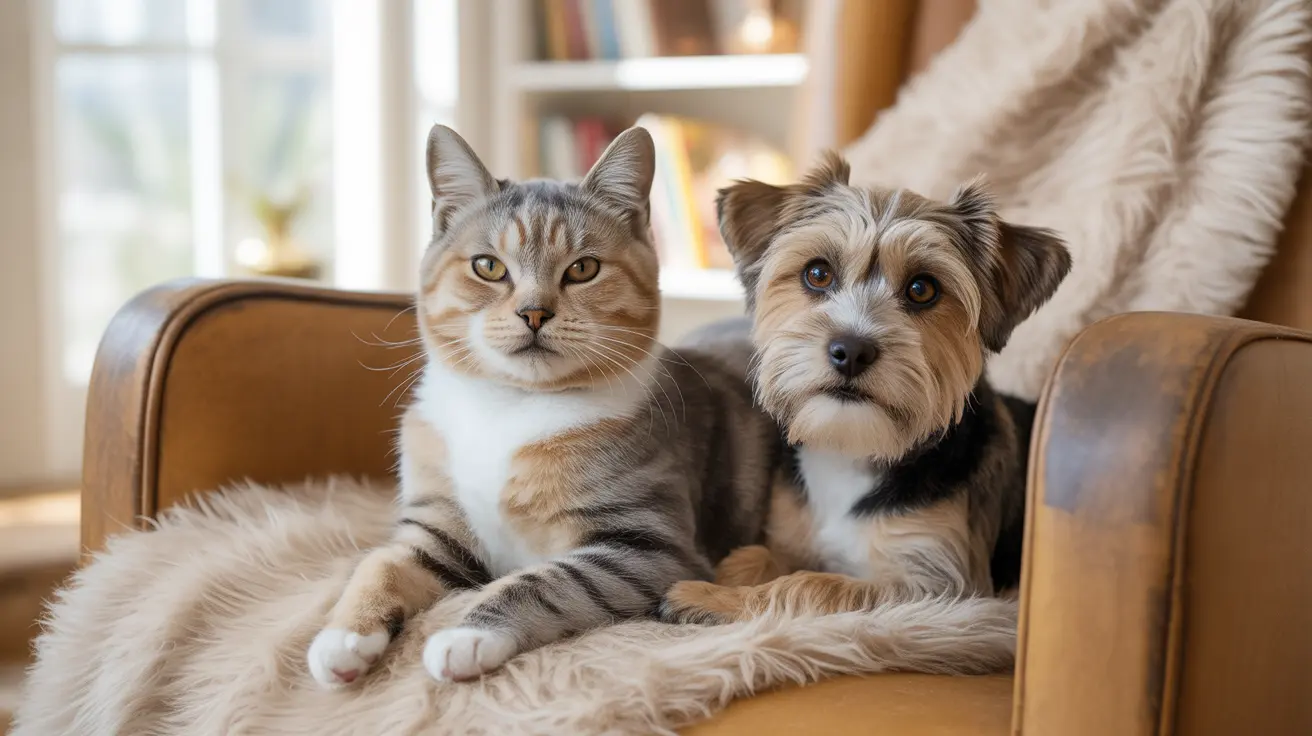When most people walk through animal shelters, their eyes naturally gravitate toward the playful puppies and frisky kittens bouncing around their kennels. However, seasoned pet lovers know that some of the most rewarding relationships come from senior pet adoption. These mature animals, often overlooked in favor of younger counterparts, possess a quiet wisdom and grateful demeanor that can transform any household into a haven of unconditional love.
Senior pets, typically defined as dogs over seven years old and cats over eight, bring unique advantages that make them exceptional companions. Their established personalities, refined temperaments, and deep appreciation for a second chance at happiness offer adopters something truly special—a bond built on mutual respect and understanding.
The Remarkable Benefits of Older Cats Adoption
Adopting senior dogs and cats comes with numerous practical advantages that many potential pet parents fail to consider. Unlike their younger counterparts, senior animals have already developed their full personalities, eliminating the guesswork about how they'll behave as adults. What you see is truly what you get—a calm, predictable companion whose quirks and preferences are already established.
Senior dog temperament tends to be more relaxed and stable compared to energetic puppies. These mature animals have typically mastered basic training, including housebreaking, making the transition into your home smoother and less stressful. Many senior pets also respond well to commands they've learned throughout their lives, requiring minimal additional training.
Understanding Senior Pet Exercise Needs and Care Requirements
One of the most appealing aspects of older pet medical care is that senior animals generally require less intensive exercise routines. While younger dogs may need multiple long walks and vigorous play sessions daily, senior pets are often content with gentle strolls and relaxed indoor activities. This makes them perfect low-energy pets for adoption, especially suitable for busy professionals, elderly individuals, or families with limited time for extensive pet exercise.
However, this doesn't mean senior pets are maintenance-free. Regular veterinary check-ups become increasingly important to monitor and manage age-related conditions such as arthritis, dental issues, or vision changes. Many adopters find that the predictable care routine and lower energy requirements actually make senior pets easier to manage than their younger counterparts.
Addressing Shelter Pet Overpopulation Through Senior Adoption
Senior pet shelter statistics reveal a sobering reality: older animals face significantly longer shelter stays and higher euthanasia risks compared to younger pets. By choosing to adopt a senior pet, you're not only gaining a wonderful companion but also making a meaningful impact on shelter pet overpopulation. Every senior adoption frees up valuable shelter resources and creates space for another animal in need.
Many shelters recognize the challenge of placing older animals and have developed innovative programs to encourage their adoption. Seniors for seniors pet adoption programs specifically match older adults with senior pets, recognizing that both demographics can benefit tremendously from this partnership. These programs often include reduced adoption fees, ongoing support, and sometimes assistance with veterinary costs.
Practical Tips for How to Adopt a Senior Pet Successfully
If you're considering older cat adoption tips or preparing for a senior dog, several factors can help ensure a smooth transition. First, discuss the pet's medical history and current health status with shelter staff or veterinarians. Understanding any existing conditions helps you prepare for ongoing care needs and associated costs.
Creating a comfortable home environment is crucial for senior pets. This might include providing orthopedic bedding for arthritic joints, installing ramps to help with mobility, or establishing quiet spaces where your new companion can rest undisturbed. Financial help for senior pet care is often available through various organizations and programs, making the ongoing expenses more manageable.
Why Adopt Older Pets: The Emotional Rewards
Beyond the practical advantages, senior pets offer emotional rewards that younger animals simply cannot match. There's something profoundly moving about providing a loving home to an animal in their golden years. These pets seem to understand they've been given a second chance, often displaying remarkable gratitude and loyalty toward their new families.
Senior pets have learned to appreciate the simple pleasures in life—a warm sunny spot by the window, gentle scratches behind the ears, or quiet companionship during evening television watching. Their calm presence can be incredibly therapeutic, offering stress relief and emotional support that benefits the entire household.
Frequently Asked Questions
What are the main benefits of adopting a senior dog or cat compared to a younger pet?
Senior pets offer a calm temperament, established personalities, basic training (such as housetraining and learned commands), and lower exercise needs, making them ideal for many adopters seeking relaxed companions.
Are senior pets typically healthy enough for adoption, and what kind of medical care might they need?
Many senior pets are in good health and can live several years after adoption with proper veterinary care. While some may need management for age-related conditions like arthritis or dental issues, these are often manageable, and some shelters assist with medical costs.
Why do senior pets have lower adoption rates, and how can adopting a senior pet impact an animal shelter?
Senior pets are often overlooked due to misconceptions about health and lifespan and breed or age preferences. Adopting a senior pet helps reduce shelter overcrowding, decreases euthanasia risk for older animals, and frees shelter resources for other animals in need.
How can I best prepare my home and lifestyle for adopting a senior pet?
Prospective adopters should be ready to provide gentle exercise, age-appropriate diet, regular vet visits, and home adjustments like ramps or soft bedding to accommodate mobility issues, ensuring a comfortable environment for the senior pet.
Are there special programs or discounts for adopting senior pets, especially for older adopters?
Yes, many shelters offer 'Seniors for Seniors' programs that pair older adults with senior pets, providing reduced adoption fees, counseling, and support to encourage these beneficial matches.






